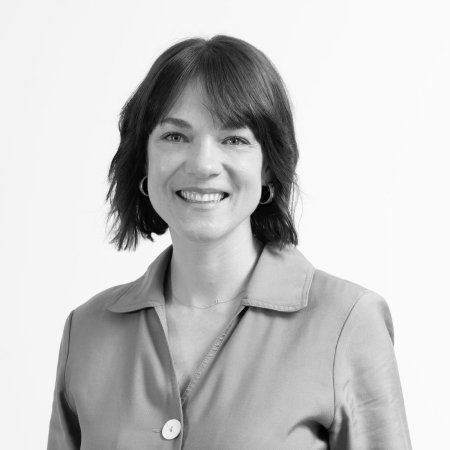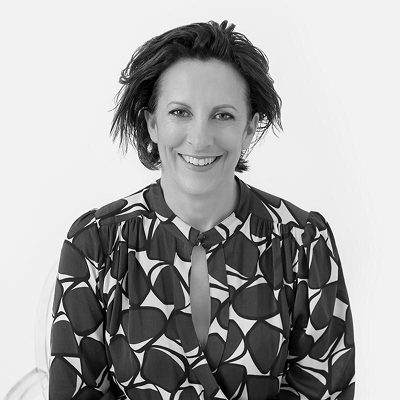
ASKING FOR A FRIEND
I feel like I'm always on the verge of burnout because I love what I do. Any tips on how to manage my need to be always on?
ASKING FOR A FRIEND - QUESTION
Ever feel like your creative brain won't switch off? You're definitely not alone. In this honest discussion, Martine Beaumont (psychotherapist and executive coach with 30+ years supporting workplace mental health) and Nicky Bryson (brand strategist and co-founder of Sayers Brand Momentum) tackle the modern creative's dilemma with host Andy Wright. They explore why we get stuck in "always on" mode, the brain science behind burnout, and practical ways to find balance without losing your creative edge. Perfect for anyone who loves what they do but is tired of being perpetually switched on.
When Your Creative Brain Won't Switch Off: Breaking the Always-On Cycle
The Creative's Dilemma
If you're reading this, chances are you know the feeling: that constant hum of ideas, the inability to truly switch off, the love for what you do mixed with the exhaustion of being perpetually "on". It's one of the most common struggles in our industry, and it's become even more pronounced since the pandemic shifted how we work.
The question we're exploring today comes from someone who perfectly captures this modern creative dilemma: loving their work but struggling with the unsustainable pattern of always being switched on, even when it's starting to impact their relationships.
This question was answered by Martine Beaumont, founder and CEO of Select Wellness and Select Counsellors, a psychotherapist and executive coach with over 30 years of experience supporting mental health in the workplace, and Nicky Bryson, Principal and Co-founder of Sayers Brand Momentum, a highly experienced brand and cultural strategist who understands the pressures of creative leadership. The discussion was hosted by Andy Wright, founder of Never Not Creative and CEO of Streamtime.
Understanding Your Brain's Networks
The first thing to understand is that your brain never actually switches off. As Martine explains: "If you're switching your brain off you're in an episode of Gray's Anatomy and it's not going to look good. Your brain just switches through different networks."
These networks are crucial to understand. Martine breaks them down into three main types: your task network (when you're doing and consuming information), your thinking network (when you're integrating, strategising, and creating), and your sensory network (when you're fully present in the moment).
The problem many of us face is getting stuck between the first two networks. "It's like we're stuck in our doing and our thinking, and that's not healthy because both of them have significant long-term health impacts for us," Martine notes. When your thinking brain has been working too long and starts turning negative, "that's where a lot of depression and anxiety comes out of."
Why We Resist Switching Off
Even when we know we need breaks, there's often real resistance to taking them. Martine identifies several common barriers that might sound familiar.
The "I'm too busy" excuse is perhaps the most common, but it's actually backwards thinking. "The busier you are the more your brain actually does need to spend some time in the sensory network to be able to then go back and be creative and be effective in that thinking network," Martine explains.
Sometimes the resistance runs deeper, rooted in how we were raised or the culture we work in. Martine shares her own experience: "I've got a workaholic dad so I know if he rings me on the weekend and I say I'm working I get little pats on the head." If you've grown up in an environment where workaholism is rewarded, challenging that pattern can feel like going against everything you've learned about being "good" or successful.
There's also the fear of being judged. Many people worry about being seen as selfish or lazy for taking breaks. Martine encourages a different approach: "If you're going to take breaks at work put it in your diary in shining lights. Let's make a movement of like this is something to be admired, not to be looked down on."
The Addiction to Being Always On
Perhaps most concerning is when we become addicted to being constantly switched on. "Our brain gets stuck in on position," Martine observes. When this happens, you might need more than just daily breaks. "The holiday I need to have is one where my phone's away I'm doing lots of sensory activities I'm not running around too much, but I'm really giving my brain getting my brain to unhook."
Nicky adds another layer to this, suggesting it's worth examining what drives your need to always be on. "Is it validation or acknowledgment?" she asks. Sometimes understanding the underlying motivation can help you find healthier ways to meet that need.
Practical Ways to Access Your Sensory Network
The solution isn't to stop thinking or creating (that's impossible and not the goal), but to make sure you're spending enough time in that crucial third network: your sensory brain.
Martine suggests that at least 15-20 minutes of your downtime should be "something really sensory whether it's going for a cold swim, connecting with a good friend, playing a musical instrument, patting a dog, going for a walk, being in nature, anything that stimulates your senses."
The key is being fully present in whatever you're doing. As Andy puts it: "When you do get away you have to give yourself kind of fully to what it is that you're doing. It's easy to just keep in the back of your head that I've still got to do that and I've got to do this, but if you can go actually no I am with the dog or the kids or my wife then you by just going no I'm in I'm in that now."
Making the Switch
This isn't about perfection or completely overhauling your life overnight. It's about recognising that being always on isn't sustainable and that your brain actually needs variety to function at its best. The creative work you love will benefit from giving your mind the chance to move between different states.
Remember, this struggle is incredibly common, especially in our industry and especially post-pandemic. You're not broken, lazy, or lacking willpower if you find it hard to switch off. You're human, working in a world that makes it increasingly difficult to have natural boundaries.
The goal isn't to love your work less, but to love yourself enough to create the conditions where both you and your creativity can thrive long-term. Your relationships, your health, and ultimately your creative output will all benefit from learning to move between being on and being present.
our guests
Industry Leader

Nicky Bryson
Telstra
Mental Health Expert

Martine Beaumont
Select Wellness
Host

